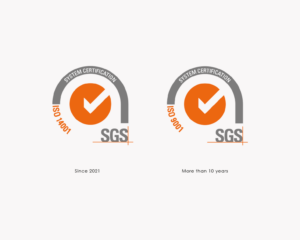The MOT Vehicle Technical Inspection is popularly considered by drivers as an imposition by the authorities, to control the condition of the vehicles, failing to really understand the purpose of these periodic inspections.
The justification of the technical vehicle inspection (ITV)
The main objective of ITV, since its birth in the 1970s, is that of significantly prevent accidents caused by possible mechanical failures that may occur in vehicles, derived from the habitual use of its components, whether mechanical elements, such as suspensions, or recently, with the technological advance and development of the automotive industry, of electronic elements that contribute to the control and safety of the vehicle such as the new ADAS (Advanced Driver Assistance Systems).
However, with the passage of time, the use of vehicles has been adapted to the new lifestyles of society, directly impacting the amount of polluting gas emissions into the atmosphere, resulting from internal combustion engines, the predominant type of engine in all vehicles for private and private use, currently in circulation.
For this reason, manufacturers have been implementing mechanisms to try to reduce these emissions and even with the development of new engines such as the electric one, or in the near future, the hydrogen engine. Derived from the increase in air pollution, The ITVs have been in charge of controlling the values of the polluting emissions of the vehicles or notifying about those who do not comply with said parameters.
Given the importance of the vehicle in society, the Commitment to the environment should not only fall on the authorities, but also on the driver and even the vehicle inspection stations., since thousands of vehicles pass through them a year, and both while waiting and during the diagnostic tests carried out in the centers, a large amount of gases continue to be produced.
A study carried out by the Industrial Technical Foundation, analyzing the role of vehicle inspection stations in reducing polluting gases in vehicles, proposes several measures so that the centers contribute to a more efficient use of their services. They are between them:
- Let the driver know an estimate of CO emissions2 of your vehicle.
- Carry out awareness campaigns about the importance of contaminants.
- Transmit security and confidence about the inspection.
- Communication with manufacturers about problems found.
- Carry out good management of waits in the centers.
You can read the full article here.
The role of Ryme Worldwide
The way we contribute Ryme Worldwide Group In this process, it is providing technical inspection centers around the world with the necessary equipment to accurately and efficiently measure these emissions. We have gas analyzers combustion, opacimeters to measure the opacity of exhaust gases, and dynamometric benches that locate ignition or injection problems and even help improve the vehicle's fuel consumption. We ensure that our emissions equipment meets the latest standards, thus marking the difference to embark on this journey towards a clean, efficient and safe automotive industry.




